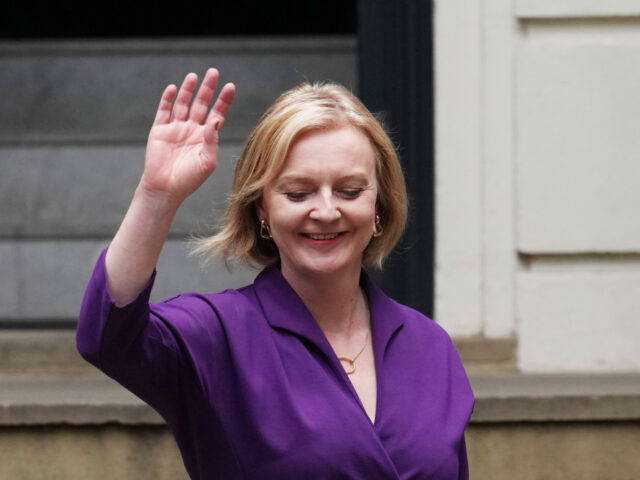Incoming Prime Minister Liz Truss could end up taking out a loan of around £90 billion (~$104 billion) to freeze household energy bills, reports are now claiming.
The British government has mismanaged energy policy for so long, now an energy crisis is actually at hand, it may be too late to do anything but throw money at the problem, even if this only addresses the symptoms, not the causes.
Newly minted Prime Minister Liz Truss is reportedly planning to freeze energy bills for households in Britain, in a move that has been described by one think tank official as both a “terrible policy” and yet likely unavoidable.
However, some publications are suggesting that such a plan — which could be announced as soon as Thursday — would be paid for using borrowed money, something that would likely cause many to doubt the claim that Truss will be a “fiscally responsible” prime minister, as allies previously claimed.
According to a report by The Telegraph, it is now seemingly certain that Liz Truss’ government will freeze energy bills at around £2,500 (~$2880) for two winters, with plans also reportedly being in place to help small to medium enterprises also, though the exact details of which at the moment remain unknown.
While some had suggested that this price freeze could have been funded by later charging energy customers slightly more when prices become stable again, The Guardian reports critics as saying that such a move would be difficult to justify while energy companies are making record profits.
Instead, Truss is supposedly looking at paying for the scheme using borrowed money, an expensive prospect considering that it is projected that such a price freeze could cost as much as £90 billion (~$104 billion).
This extremely high cost is particularly notable considering a key ally of Liz Truss, Kwasi Kwarteng, had only just promised on Monday that the new Prime Minister would act in a “fiscally responsible” way.
“The OECD has said that the current government policy is contractionary, which will only send us into a negative spiral when the aim should be to do the opposite. But I want to provide reassurance that this will be done in a fiscally responsible way.” the politician, who is thought will end up being Britain’s Chancellor of the Exchequer, wrote in the Financial Times.
“Liz is committed to a lean state and, as the immediate shock subsides, we will work to reduce the debt-to-GDP ratio over time,” Kwarteng went on to say.
Prime Minister-Elect Truss Claims She Will ‘Govern as a Conservative’ https://t.co/PcprhOK8CQ
— Breitbart London (@BreitbartLondon) September 5, 2022
While borrowing tens of billions of dollars for the purpose of everyday spending is something that would be suspect for a politician to do at the best of times, what could be seen as particularly worrying about Truss’ alleged plan to borrow such money for the purpose of freezing energy bills is that it will do little to nothing to solve the UK’s energy crisis in the long term.
In fact, according to a report by The Times, one economist from the Institute for Fiscal Studies has called the freeze a “terrible policy” that will likely make the energy crisis worse.
“The problems with it are twofold,” the publication reports economics expert Paul Johnson as saying. “It’s enormously expensive and a lot of money goes to people who don’t need it, and [secondly] if you’re holding prices constant what takes the strain is supply, so that increases the risk that you’ll end up with shortages.”
To make matters worse, the spending will likely do nothing to decrease UK reliance on foreign fuel, nor increase the overall capacity of its energy grid, with Liz Truss even openly backing the Net Zero green agenda policies that helped damage the British energy sector in the first place.
In this context, Paul Johnson actually admits that Truss’ government may not actually have much choice other than to implement an energy price freeze, saying that there does not appear to be any other immediate solution to the problem of surging energy bills, and that the cost of doing nothing might end up being far worse.
“You might hope to come up with something better for next winter but it’s really hard to think of something else you can make work this winter,” he said, ultimately saying that a freeze on energy bills is likely a bad policy that now cannot be avoided.
The stock market appears to have agreed with this sentiment, with many stocks seemingly rallying on the back of this unannounced freeze according to analysis done by The Times, with retailers in particular said to have made significant gains in early trading on Tuesday morning.
Boris Johnson to Beg UK to Keep Pushing Net Zero Green Agenda Despite Energy Crisishttps://t.co/CeBTv0xk0z
— Breitbart London (@BreitbartLondon) August 31, 2022

COMMENTS
Please let us know if you're having issues with commenting.